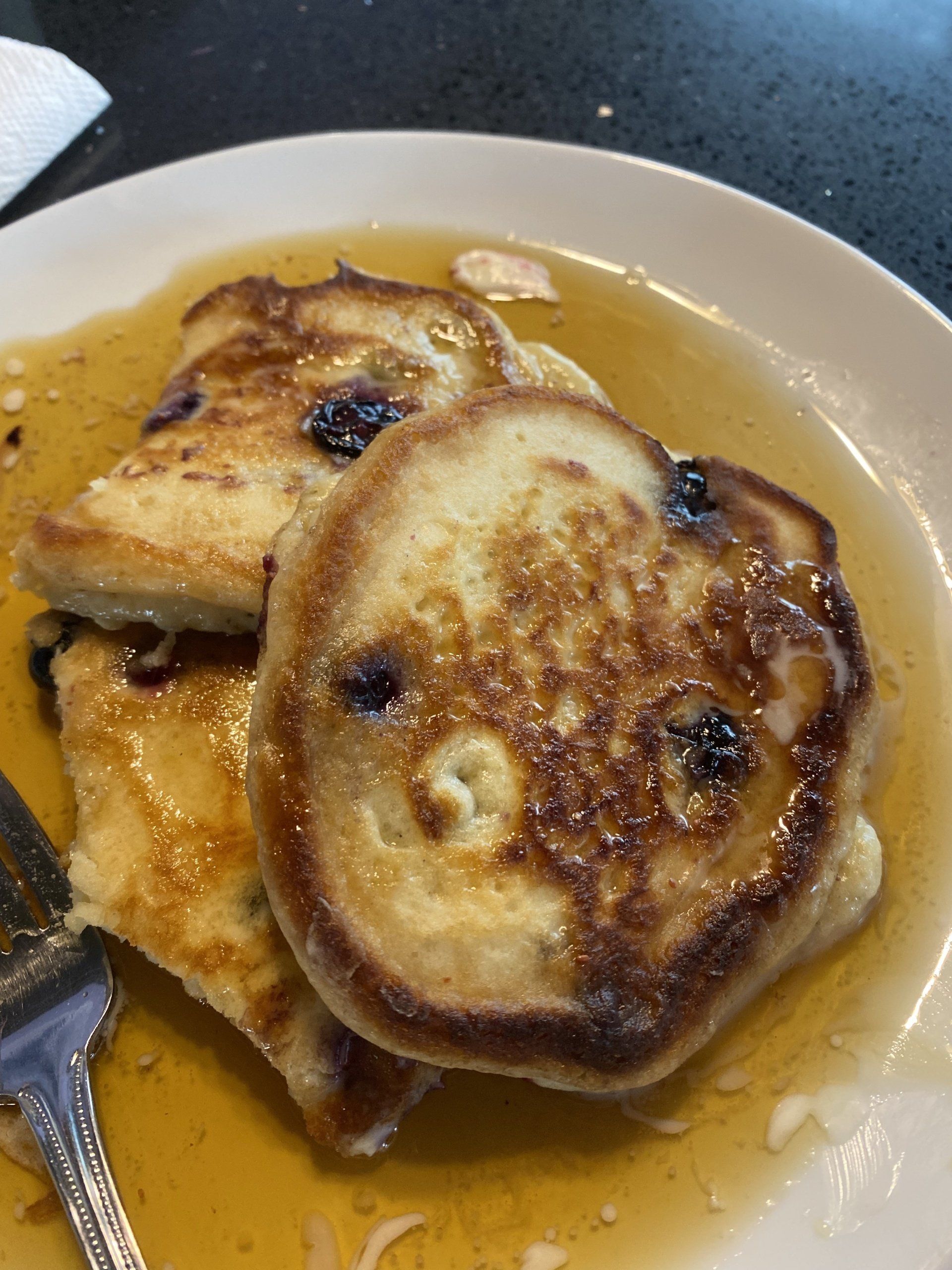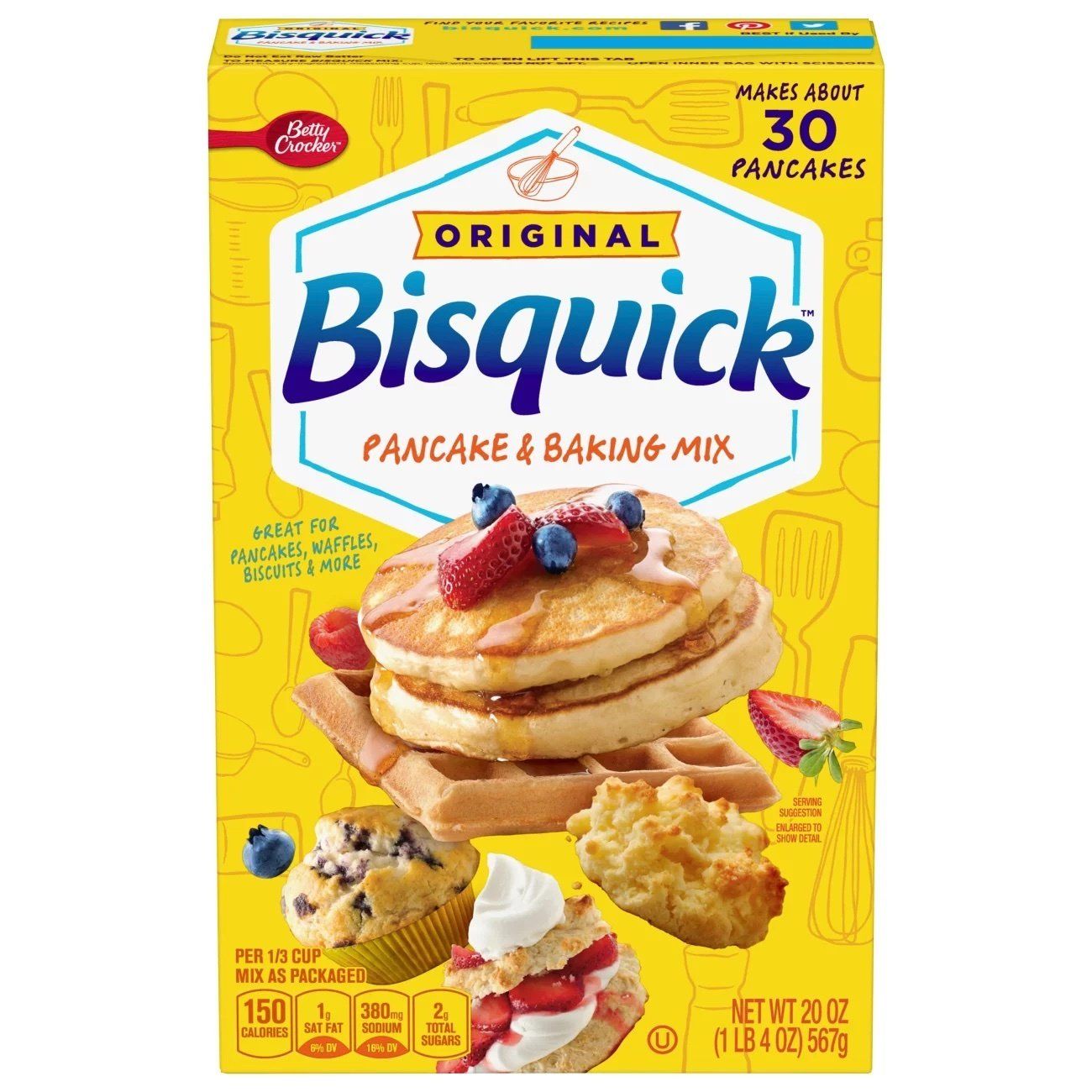Bisquick or Scratch

I love pancakes. I don't eat them often, they are definitely a special treat. Now that my children have flown the coop I mostly make them when the grandbabies sleep over. The other morning however, with no grandbabies in sight Dan and I decided we would have pancakes for breakfast and not just basic pancakes but blueberry pancakes.
Neither of us were very hungry when we made this decision, so we both retreated to our respective spaces with our favorite morning beverage to read a bit before we would have breakfast.
I sat out on the front porch sipping my tea enjoying my latest read. It was a beautiful summer morning, birds chirping, an occasional car passing by and the sweetest hint of the sea riding in on the gentle breeze. After a chapter or so, I began to daydream about the pancakes and even imagined Danny making the pancakes - it was time to go back in the house.
Much to my surprise Dan in deed was making the pancakes, but not just any pancakes, pancakes from scratch!
The counter was awash with evidence of his culinary enterprise. I decided I would pick up the 'debris' and put everything away as he cooked. The smell from the skillet was intoxicating - did I notice the subtle scent of pumpkin spice, OMG and vanilla extract - these were truly special pancakes.
(I do love my butter and syrup)

My go-to pancake recipe is Bisquick.
If you are not familiar with Bisquick it's a premixed baking mix that is super versatile. You can make pancakes, waffles, strawberry shortcake; you can even make the batter to deep fry your chicken with this amazing product.
As I thought about my Bisquick pancakes juxtaposed to Dan's scratch pancakes, I thought about how making Bisquick pancakes is wicked easy and fast and they are still yummy. I don't even need to read the recipe they are that easy and everyone is satisfied with the results.
I then thought about Dan's pancakes, they were delicious for sure but they did require a bit more presence in the making of them, something he gave freely to this effort - and I think that's where the magic lies . It certainly was where the enjoyment of the experience found its roots.
Both recipes yielded the same results - pancakes, however from a qualitative perspective, the scratch pancakes were in a totally different league!
Just like anything, there is a quick and easy 'default' approach, or there is the thoughtful, reflective personal approach. Like when I walk down the street and say 'hi, how are ya' to the passerby without even pausing to hear their answer. It's a rote act of 'courtesy'. I mean, I am not trying to be rude, I want to acknowledge the other person, but, truth be told, I am not really interested in their reply. And, the person usually replies with the same question without losing a pace in their walking.
It's the Bisquick approach!

It's an approach that while may be super efficient with an air of authenticity, it's the integrity that suffers. The superfluous act of 'hi, how are ya', like Bisquick pancakes can diminish our uniqueness; marginalize our awe and the awesomeness we bring to our own life and the life we share with others.
I am not trying to say there isn't a place in life for Bisquick (or quick salutations) but I worry about getting so comfortable with the convenience that we miss out on being fully present to the experiences we are privileged to create, for self and other.
We have a choice, to show up to our life and the lives we serve as a premixed, off the shelf concoction of tasks, duties and responsibilities that will give you a consistent output (aka pancake) OR we can show up in celebration of the one and only, super unique composition of spices, staples, flavors and more that we are and give 'other' an experience that will not only satisfy their needs but surpass their wildest expectations.
Bisquick or scratch, you choose!
Thanks for taking the time to read me today.
Take care and care well,
Mary
Share if you Care...
You may also enjoy...










